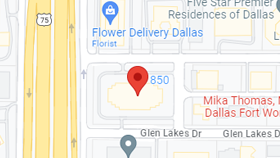Estate Planning Newsletter
Special Needs Trusts and the Disabled
Some government statistics estimate that between 15% and 20% of all Americans have some form of disability. It is also estimated that the majority of disabled persons will need to avail themselves of public assistance to help pay the skyrocketing costs of health care, since few have the private resources to do so. There are several forms of public assistance available to the disabled; two prominent forms of assistance are “Supplemental Security Income” (SSI) and Medicaid.
SSI and Medicaid
SSI provides a very modest monthly allowance, intended to supply basic needs for food, clothing, and shelter, for anyone who is over age 65, blind, or disabled. In order to qualify for SSI, the disabled person must have very limited income and resources, among other requirements. As the income of the person increases over a certain amount, the SSI stipend decreases proportionately. Possessing more than a maximum dollar value of assets ($2,000 for individuals, though some assets are exempt from the calculation, e.g., some homes and cars), can also disqualify a person from receiving SSI.
Another program, Medicaid, and its various forms in the states, provides medical care for the disabled. Medicaid is not as restrictive in its benefits as SSI. In most instances, Medicaid will pay for the cost of a medical treatment or procedure, without any adjustment based upon the patient’s ability to pay. To qualify for Medicaid, however, the individual must qualify for SSI. Basically that means that all assets must be exhausted and the person must accept a subsistence level of existence.
Special Needs Trusts
Direct transfers or gifts to the disabled by well-meaning friends and relatives, settlement proceeds of a lawsuit (perhaps on a claim that created the disability) or workers’ comp claim may impair the recipient’s eligibility for public assistance, including SSI and Medicaid. One solution to this problem has been the “Special Needs Trust” (SNT).
The main purpose of an SNT is to preserve the disabled beneficiary’s eligibility for public benefits, while the assets of the SNT are used for things that are not provided by public assistance, such as vacations, a computer, Internet access, home furnishings, cable TV, special vehicles, and advanced medical treatment not covered under Medicaid.
Advantages of an SNT
A trust may be defined as a written agreement transferring legal title in property (real or personal) to another, who then holds and manages the assets of the trust for the benefit of the beneficiaries named in the trust. SNTs have existed since the 1970’s and have often been used to hold the proceeds of a litigation settlement arising out a personal injury lawsuit.
If the SNT is properly set up in compliance with applicable state and federal laws, especially as to the ownership and use of the assets, the assets and income from the SNT may not be considered as belonging to the disabled beneficiary, and therefore may not disqualify the beneficiary from receiving public benefits. Normally, federal law included income and assets held in a trust for a disabled beneficiary for the purposes of determining SSI and Medicaid eligibility; the SNT constituted an exception.
Requirements for SNTs
There were a few states, however, that refused to recognize SNTs. In 1993, Congress passed the “Omnibus Budget Reconciliation Act” (OBRA). One section of OBRA changed federal law, permitting the use of certain types of SNTs throughout the U.S., providing they comply with the requirements of OBRA; each state developed corresponding laws. For this type of SNT to be exempt from treatment as an asset for SSI and Medicaid purposes, federal law requires that:
- The SNT contain the assets of an individual under the age of 65;
- The individual is “disabled,” as defined in the Social Security Act;
- The SNT is established for the benefit of this individual by a parent, grandparent, legal guardian, or a court; and
- The SNT must specify that the state that provided the medical assistance will receive all amounts remaining in the SNT upon the death of the individual, up to an amount equal to the total medical assistance paid by that state Medicaid plan; this requirement is, however, subject to prior payment of certain expenses.
Other provisions of the SNT may include that:
- The SNT is supplemental to public benefits, not meant to supplant such benefits.
- The trustee has full discretion in making all distributions from the SNT; the trust cannot mandate payments or distributions from the trust.
- The SNT cannot be subject to the beneficiary’s control.
- No distributions will be made for food, clothing, and shelter, as such items are covered by SSI.
Conclusions
The above is only one of several types of SNTs. Other types of SNTs include a “pooled income SNT,” entailing an account for the disabled person that is administered by a charitable organization, “third party” and “family” SNTs. All have special requirements, but are similar in that a beneficiary cannot own the assets of the SNT.
As SNTs must comply with often complex and detailed federal and state laws and regulations, drafting a trust agreement for an SNT can be extremely difficult. In addition, the laws regarding SNTs can and do change. There are, however, attorneys who specialize in this field and, given the severe consequences that may result as a result of mistakes in drafting (i.e., loss of SSI and Medicaid benefits), most recommend that an experienced attorney be consulted.
© 2026 NextClient.com, Inc. All rights reserved.


